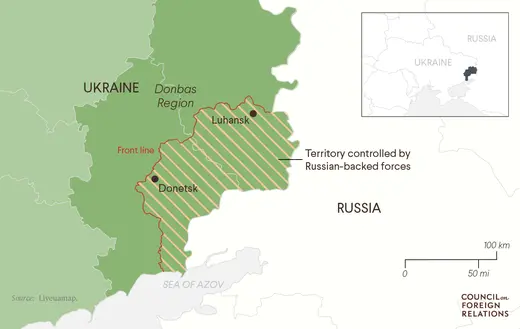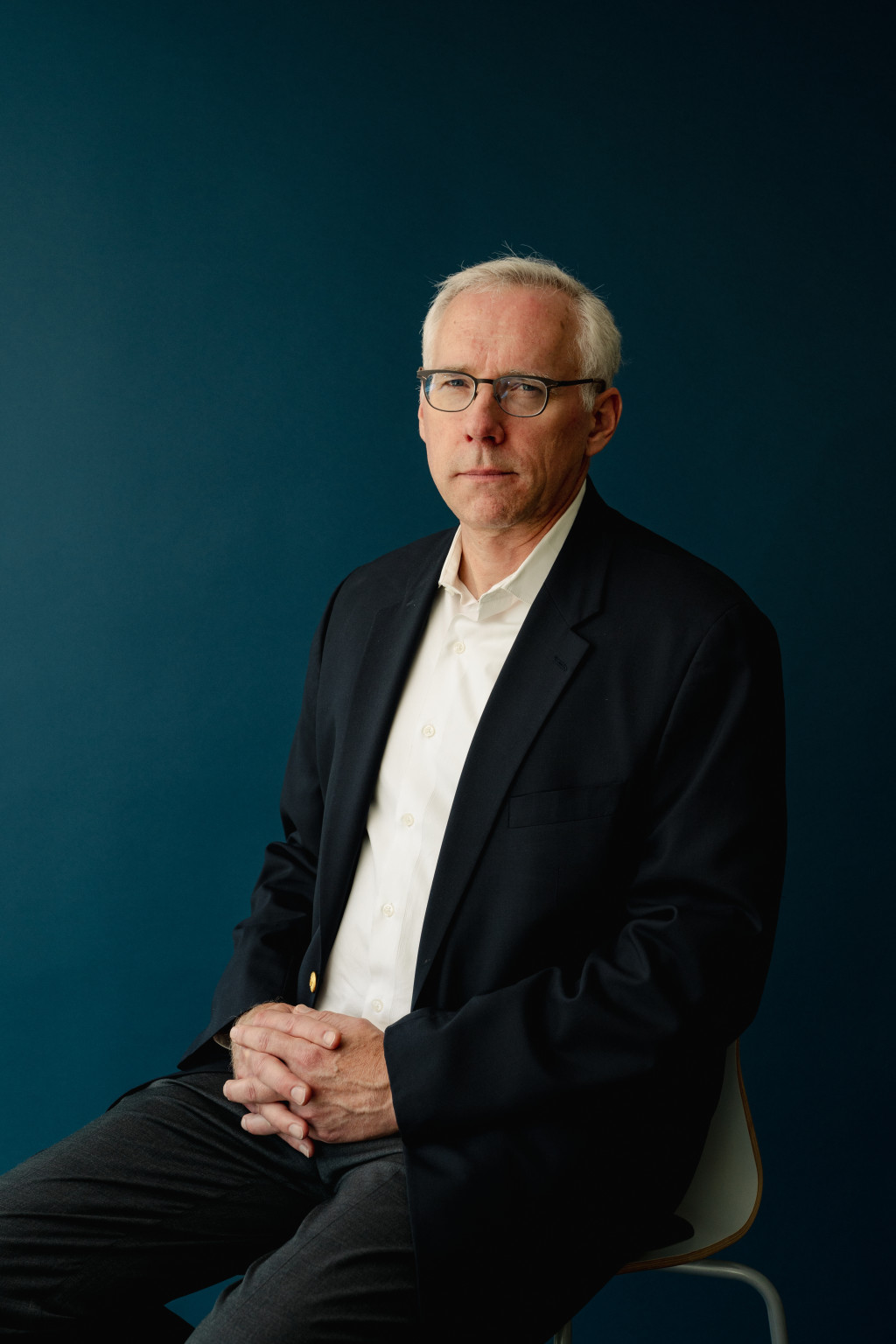Can the Paris Summit End Ukraine’s War?
The summit will feature the highest-profile talks in years on the war between Ukraine and Russia-backed separatists, but the parties will have to bridge major divides to find a permanent end to the conflict.
The leaders of France, Germany, Russia, and Ukraine—the so-called Normandy Four group—are due to meet December 9 in Paris to renew negotiations to end the five-year conflict in eastern Ukraine. While diplomatic momentum has grown in recent months, high obstacles remain before all sides can reach a lasting settlement.

An Almost-Frozen Conflict
Separatists, enabled by Russian forces, moved to seize power in the Donbas region in April 2014 after Russia’s annexation of Crimea. The actions followed a pro-democracy uprising that led to the flight of pro-Russia President Viktor Yanukovych. The Donbas is now divided, with separatists controlling areas around the industrial centers of Donetsk and Luhansk, while the other part remains under Ukrainian government administration. Some fighting continues along the front line, but the war is largely stalled. It has exacted a heavy toll: thirteen thousand people have been killed, more than twenty thousand wounded, and about 1.5 million people internally displaced in Ukraine.
A Formula for Peace?
Volodymyr Zelensky, a political novice and popular television comedian, won the Ukrainian presidency this past spring with 73 percent of the vote, pushing a platform of reform and peace. The Paris talks build off of some positive steps this fall, including prisoner exchanges between the Ukrainian and Russian sides.
The president has signed onto the “Steinmeier formula,” a 2016 proposal from Germany’s foreign minister that calls for holding elections and potentially granting greater autonomy to the separatist-held territories in exchange for Ukraine regaining control of its border with Russia. The prospect of the disputed territories gaining special self-governing status has aroused concern among some Ukrainians that Russia will continue to wield major influence in the country’s affairs. Zelensky has stressed that local elections would only be held if the sides resolve the border issue and Russian forces draw back entirely—though Russia disputes that it has any forces in Ukraine. “We need a full withdrawal,” he told TIME in an interview this month, “a full disarming of all illegal formations, military formations, no matter the type, no matter the group, no matter the uniform, no matter what weapons.”
Ukrainian officials have said a final prisoner swap and cease-fire declaration are among the preconditions for a discussion of bigger steps toward peace. The most challenging questions during the Paris summit and after will be the sequencing of demilitarization, elections, and border control, experts say.
What’s at Stake
Russia’s annexation of Crimea and support for separatists—on the grounds it was protecting ethnic Russians in Ukraine—spurred severe EU and U.S. sanctions against Russia. The moves also stirred concerns about Russia’s intentions elsewhere in Eastern Europe, prompting the North Atlantic Treaty Organization (NATO) to bolster its deterrent, setting up patrols in the three Baltic republics and Poland. If the parties can achieve a peaceful resolution to the conflict, it could ease big-power tensions and possibly open the door to closer cooperation with Moscow on other priorities, such as counterterrorism and arms control.

The outcome of the conflict will also have consequences for the stability of Ukraine, which has struggled since its 1991 independence, in part over some efforts to move closer to Western institutions and governance norms. Ukraine’s potential as a strategic U.S. partner and its battle to overcome corruption are important features of the ongoing U.S. impeachment inquiry. “The country is ground zero for the struggle between democratic rule of law and authoritarian oligarchy,” writes Michael Carpenter, an official in the Barack Obama administration, in Foreign Affairs.
Washington’s Role
The Paris summit will follow a negotiating format that excludes the United States and European states except France and Germany. Still, the United States has been a major actor in multilateral diplomacy involving Ukraine, and a source of critical military aid to the country. The departure of special envoy Kurt Volker and the broader U.S. political controversy over Ukraine threaten to sideline Washington from vital diplomacy and influence vis-à-vis Russia, writes CFR Senior Fellow Stephen Sestanovich.
What Comes Next
Prospects for a diplomatic breakthrough are slim, experts say. More likely to happen at Paris is progress on smaller steps such as facilitating prisoner exchanges, easing movement across the makeshift front lines, and opening economic links with the separatist enclaves.
The talks will also mark the first face-to-face meeting between Zelensky and Russian President Vladimir Putin, which will be closely watched for any progress on allowing Russian natural gas to transit through Ukraine. The countries’ current transit deal expires on December 31.
